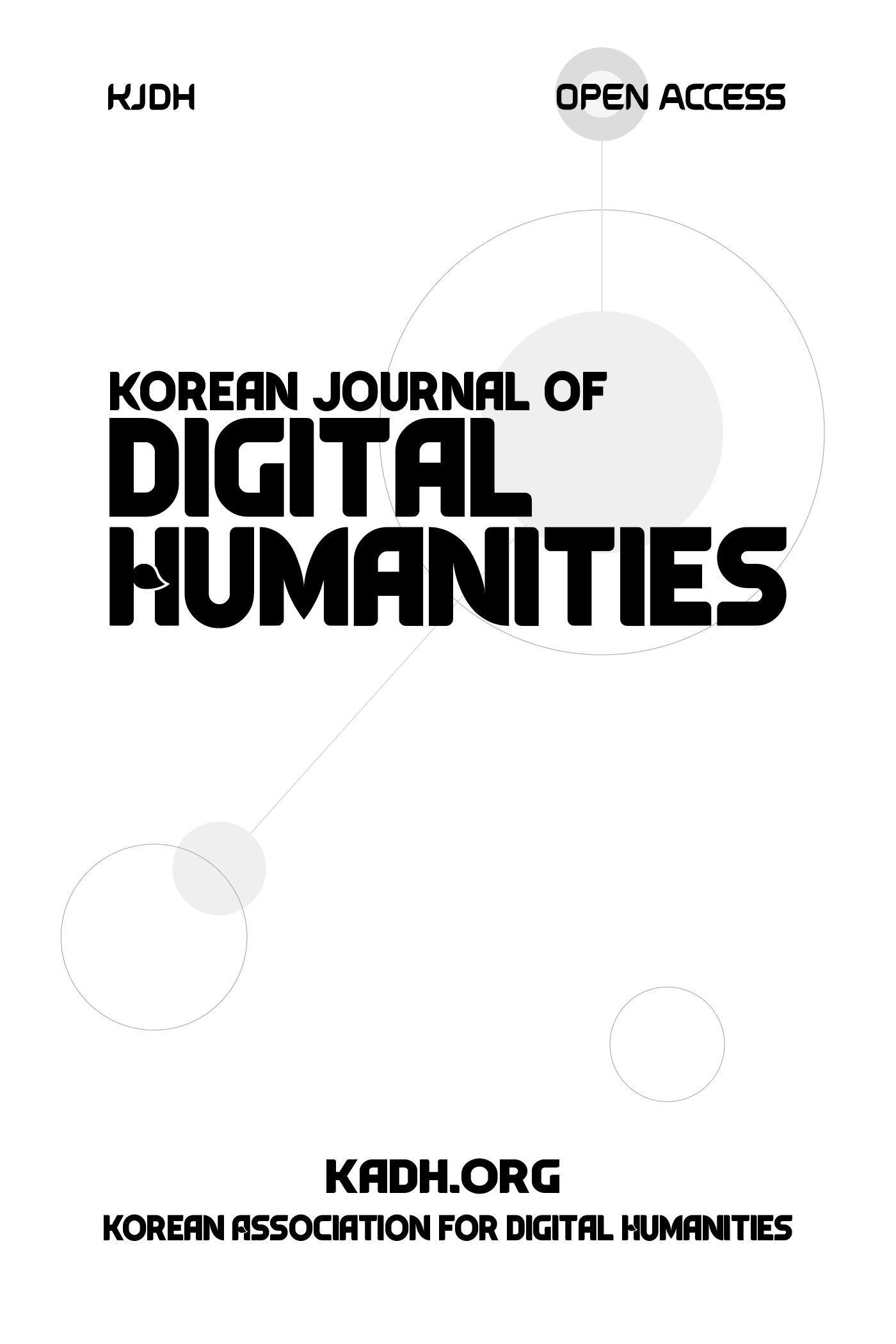- ENGLISH
- E-ISSN3058-311X
신문기사 텍스트마이닝으로 본 제1공화국 시기 ‘主權’의 담론과 의미
The Discourse and Meaning of ‘Sovereignty’ in the First Republic of Korea through Text Mining Analysis of Newspaper Articles
초록
이 글은 대한민국 제1공화국 시기에 발행된 경향신문, 동아일보, 조선일보의 주권 관련 기사 859건을 토대로 텍스트마이닝 방법론을 활용하여 당대 주권 개념의 담론과 의미, 그리고 그 변동을 분석한 연구이다. 머신러닝을 접목한 자연어처리 기법인 토픽 모델링을 통해 거시적 차원에서 당대 ‘주권’의 담론을 파악하였으며, 단어 연결망을 통해 미시적 차원에서 ‘주권’의 의미를 확인하였다. 먼저 ‘주권’과 관련하여 제1공화국 시기는 1948~1955년(전기), 1956~1960년(후기)으로 구분될 수 있었다. 담론을 분석한 결과, 대내적 담론 4개(개헌, 정치, 사회상, 선거)와 대외적 담론 4개(해양주권, 세계-냉전, 세계-독립, 분단)가 도출되었다. 그 초점이 전기에는 대외적 담론에 있었으나 후기에 들어 대내적 담론으로 이동하였으며, 특히 후기의 변화는 선거의 담론에 집중되었다. 의미를 분석한 결과, 먼저 전기와 후기 모두 국민주권으로의 인식과 주권의 결함에 대한 인식이 드러났다. 전기의 경우 ‘주권’은 이양과 회복의 대상이면서도, 특히 영역의 측면에서 침해와 제약의 대상이었다. 다만 후기의 경우 ‘주권’은 옹호와 투쟁의 대상이었으며, 그 행사 수단으로 선거가 제시되어 주권 개념에 능동성이 부여되었다.
- keywords
- 주권, 토픽 모델링, 단어 연결망, 제1공화국, 디지털 역사학
Abstract
This paper analyzes the discourse and meaning of ‘Sovereignty’ in the First Republic of Korea by employing text mining methodology, based on 859 sovereignty-related articles from Kyunghyang Shinmun, Dong-A Ilbo, and Chosun Ilbo published during the era. Topic modeling - the Natural Language Processing(NLP) technology that integrates Machine Learning - was used to uncover the discourse related to the concept of sovereignty at a macro level, and co-word network analysis was employed to identify the meaning at a micro level. First, the period of the First Republic was divided into two phases: the former period(1948-1955) and the latter period(1956-1960). The discourse analysis revealed four domestic discourses(Constitutional Amendment, Politics, Social Situation, and Election) and four international discourses(Maritime Sovereignty, World-Cold War, World-Independence, and the Division of Korea). The focus of the discourse shifted from international(the former) to domestic(the latter), with a particular emphasis on the discourse of election. The meaning analysis, at first indicated that both periods reflect an awareness of popular sovereignty and a recognition of deficiencies in its exercise. During the former period, 'Sovereignty' was perceived to be transferred and restored, but to be infringed and restricted especially in terms of territory. In the latter, ‘Sovereignty’ became a matter of defense and struggle with election being presented as the means of its exercise, thereby imparting proactivity to the concept.
- keywords
- Sovereignty, Topic Modeling, Co-word Network, the First Republic of Korea, Digital History
- 투고일Submission Date
- 2024-11-01
- 수정일Revised Date
- 2024-11-08
- 게재확정일Accepted Date
- 2024-11-15
_3200-704_투명.png)


